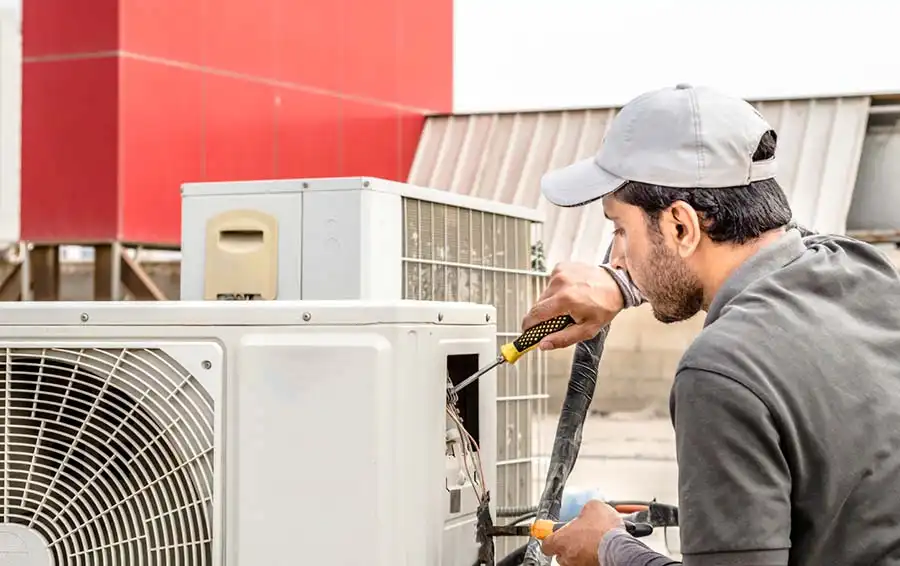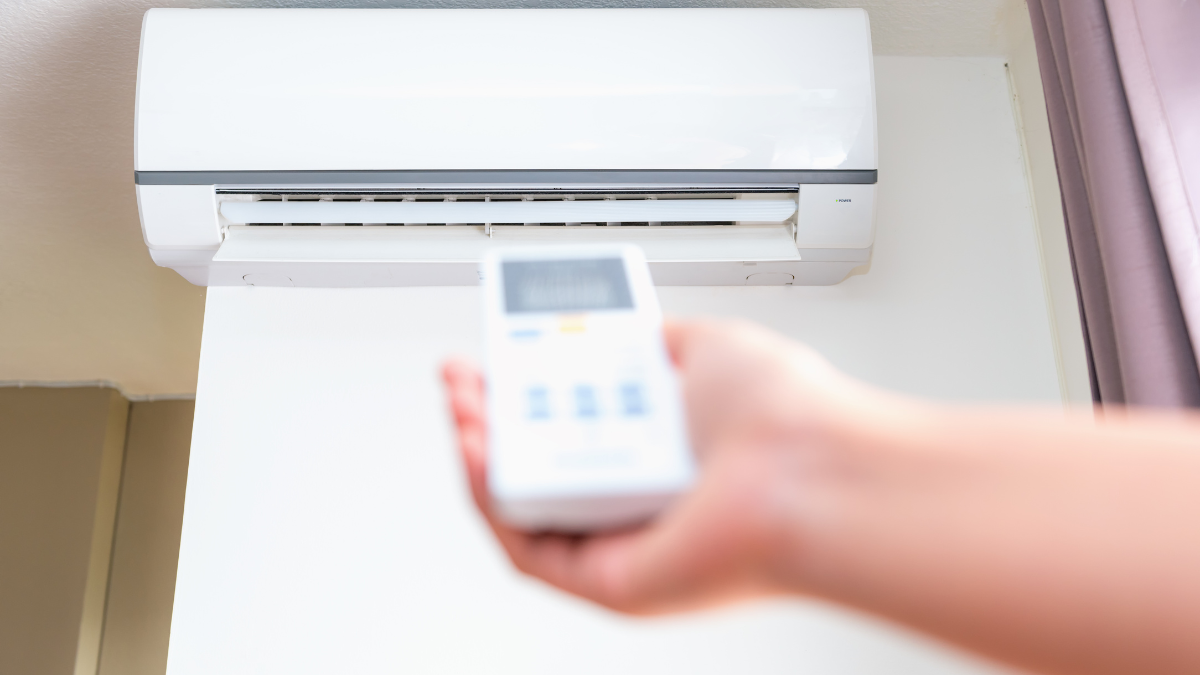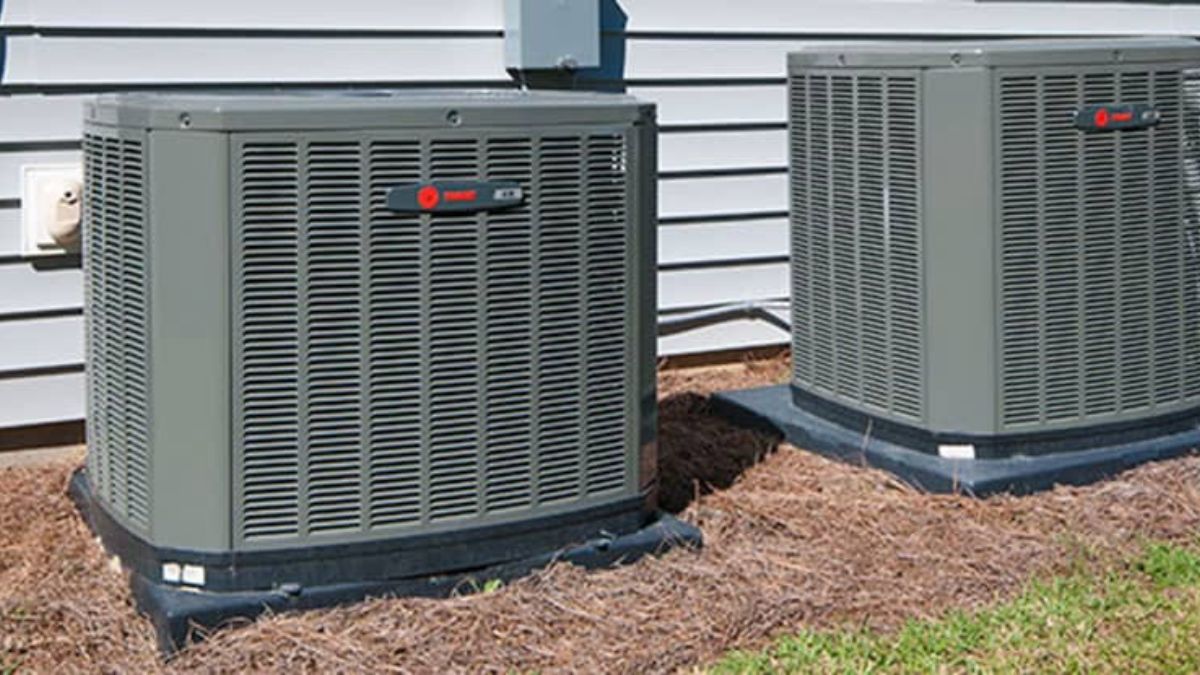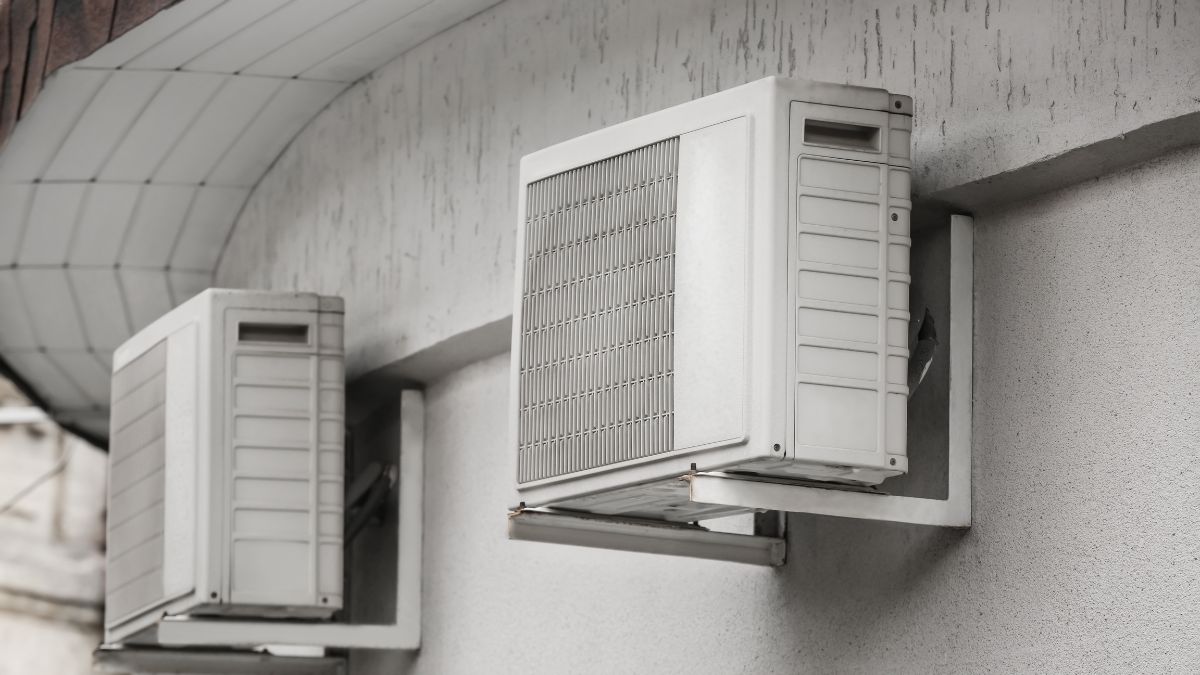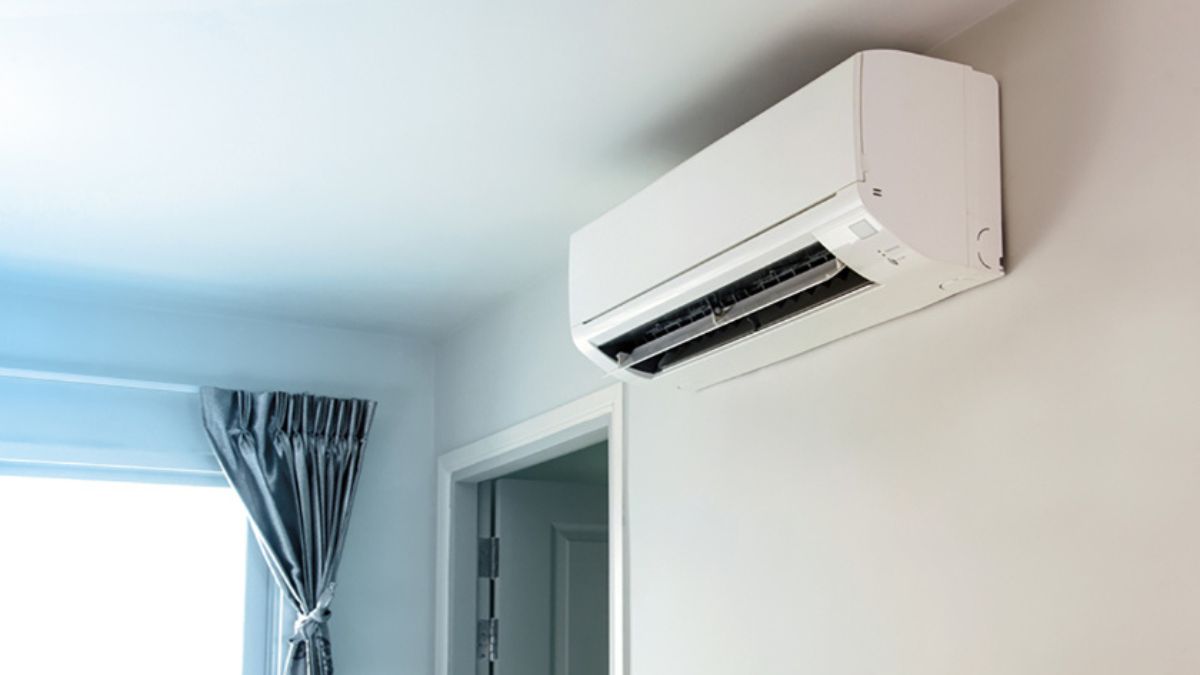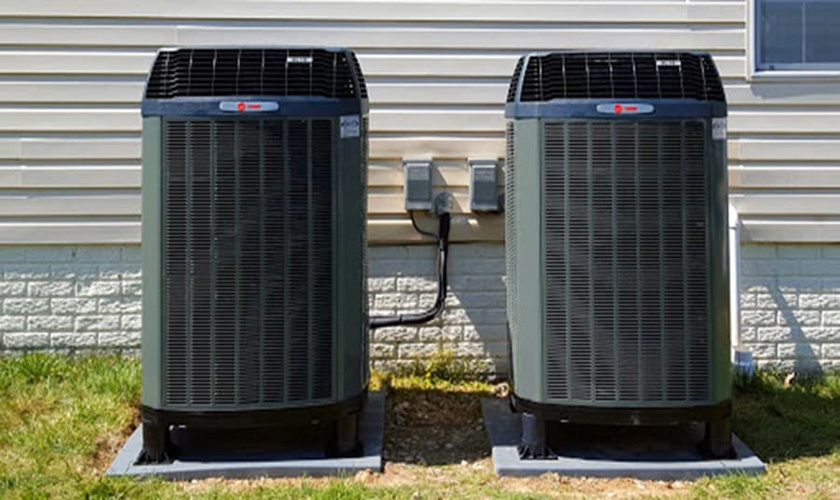
As a Certified Master Inspector, clients often ask me, what is the best heat pump? While this is a valid question, there are a lot of factors we need to consider when choosing a heat pump.
Our best heat pump buying guide will look at the factors you should consider when buying a new one. The factors we consider include the following:
- price of the heat pump
- where you live
- heat pump maintenance
- home energy costs
- heat pump brands
- energy-efficiency ratings
So, which is the best heat pump brand?
According to Consumer Reports, American Standard and Trane are the best heat pump brands according to Predicted Reliability and Owner Satisfaction in a poll of 20,000 homeowners, which is a small sample size considering the millions of homeowners in the US alone. The truth is that a handful of parent companies manufacture the most popular brands, each with very few variances in components.
Get FREE quotes from licensed HVAC contractors in your area today. Whether you need a new install, service, or basic repair We Can Help! All HVAC contractors are screened, licensed, and insured.
What to Consider When Buying the Best Heat Pump
What should you look for when buying a new heat pump system? Ultimately comes down to three things:
- Should you buy on price alone?
- Should you buy on brand alone?
- Should you buy on energy efficiency?
Here are eight factors to consider:
- Price – A handful of parent companies own most heat pump brands. These heat pumps contain similar components making price a driving factor.
- The HVAC Contractor – A hammer is only as good as the carpenter holding it. The installation of a heat pump is no different. In many cases, choosing a reputable installer is more important than the product itself.
- Location – where you live is probably the most important determining factor in what type of system you need to purchase. Do you live in a warmer, colder, or all-seasons climate?
- Homeownership – is this your forever home, or do you anticipate selling this home within the next five years? Are you buying a new home with a new heat pump and are concerned about how long it will last?
- Maintenance – How you care for a heat pump system is, ultimately, the most critical factor in the longevity of the heat pump system. Without proper maintenance, any brand you buy will break down sooner or later.
- Energy Efficiency of Your Home – do you live in an older home that is not well insulated? What is the condition of your existing ductwork? What is the condition of your exterior windows and doors?
- SEER rating – The Seasonal Energy Efficiency Ratio (SEER) rating measures the cooling efficiency of the heat pump system.
- HSPF rating – The Heating Seasonal Performance Factor (HSPF) rating measures the heating efficiency of the heat pump system.
As you see, the heat pump brand doesn’t make my list. You’ll also notice that the SEER and HSPF ratings are not my top contributing factors. That’s not to say that the best heat pump brands and energy-efficiency standards are unimportant. Quite the contrary, they are essential but only on an equal playing field.
Your home is that playing field, and all homes are different. From my experience, the above items are some of the most critical factors that affect every heat pump’s performance, regardless of the brand name.
In my opinion, you should buy on price. Allow me to explain my reasoning.
Does Price Matter When Selecting the Best Heat Pump
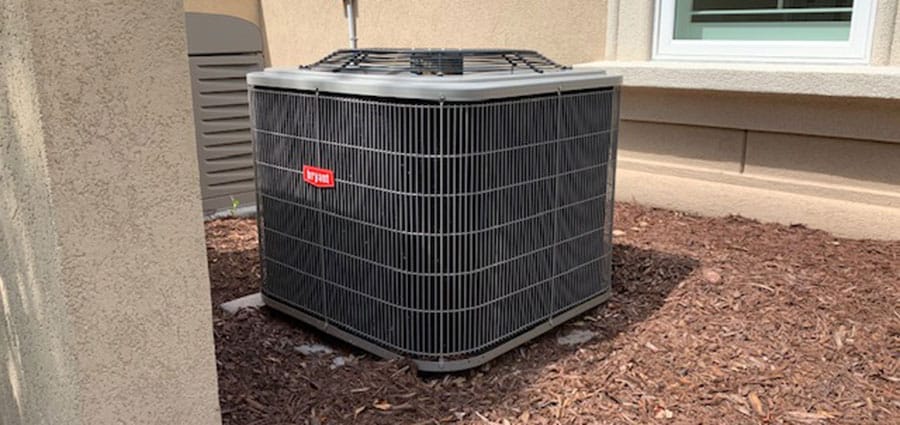
So does a higher-priced heat pump mean that it is a better heat pump? Generally no. The truth is there is not much difference between various heat pump models.
A handful of parent companies own several heat pump brands. The heat pumps under the same parent company often look the same inside and contain the same components. Therefore, brand awareness mostly comes down to marketing.
There’s a marketing adage, “people buy the sizzle, not the steak.” When marketing heat pump systems, manufacturers will use various things to make their products sizzle and stand out in the market. They do this to appeal to a larger quantity of people.
Some of these may include:
- Patented terms to describe the way their systems operate.
- Different energy-efficiency ratings.
- Energy-Star ratings from online and print publications.
- Controlled group testimonials.
- Warranty on parts and workmanship.
Most heat pump manufacturers will contract with HVAC contractors who agree to sell their systems, often for wholesale pricing exclusively. If an HVAC company represents various heat pump brands, it is usually because those brands fall under the same parent company umbrella.
There is nothing wrong with this. It’s how companies sell most products worldwide. Automobile manufacturers have used this model for decades because it works.
By buying from a manufacturer at wholesale, the HVAC company has some price flexibility, provided they do not go below a set minimum sales price outlined in their dealer agreement.
Manufacturers set minimum sales prices to protect against price wars among dealers and protect the value of their products.
Don’t get me wrong; some heat pump models tend to last longer and have fewer problems. However, ultimately, the longevity of a heat pump system comes down to:
- where you live
- is it properly sized for your home
- is your home insulated well
- is the heat pump service done routinely
Summary
Most heat pumps are manufactured by a handful of parent companies and contain very similar or even identical parts. Price is often dictated by market conditions created by the parent companies marketing efforts and dealer contracts.
The Best Heat Pump and Where You Live Matters
Where you live can significantly impact how long a heat pump system will last. For example, in the area I live in on the East Coast, heat pump systems can last anywhere from 10 years to 25 years, depending on your proximity to the coastline.
Due to the harsh environment, if you live in an area within a mile of the beach, your heat pump system will not last very long, usually about 10-12 years which can be even less for beachfront homes.
You can drive 20 minutes inland where the environmental elements aren’t as harsh, and heat pumps can last 20 to 30 years. I live about 20 miles from the coast and have two heat pumps installed in my home. Both are about 16 years old. I inspected many heat pump systems over 20 years old, and they worked great.
If you live within a mile of the coast, It doesn’t matter which brand of heat pump you purchase. None of them will last very long. Routine maintenance will help lengthen their lifespan by a few years, but ultimately the elements will take their toll.
Summary
If you live within a mile of the coast, heat pumps will only last about 10-12 years due to the harsh environment. The brand you heat pump you buy will not matter as all will wear out in this time frame. Therefore it’s best to buy on price rather than brand.
What Are Your Future Plans
When facing a heat pump replacement, you must consider your property’s long-term plans. If this is your forever home and you have no plans on moving, spending the extra money on one of the “best brands” could be a wise long-term investment.
However, if you anticipate selling your home within the next few years, you may as well buy based on the lowest price. Most heat pump brands will come with a minimum of a 5-year warranty and generally run problem-free (with routine maintenance) for about ten years.
Therefore, spending $3000 for a “better heat pump brand” doesn’t make good financial sense. See our article Will a Heat Pump Add Value to Your Home? for more information.
Summary
If the home you live in is the home you plan to retire in, investment in a better heat pump brand may be a wise investment. If you plan to move in the next few years, opt to repair the system you have or purchase a new one based on the lowest price.
Doing the Routine Heat Pump Maintenance
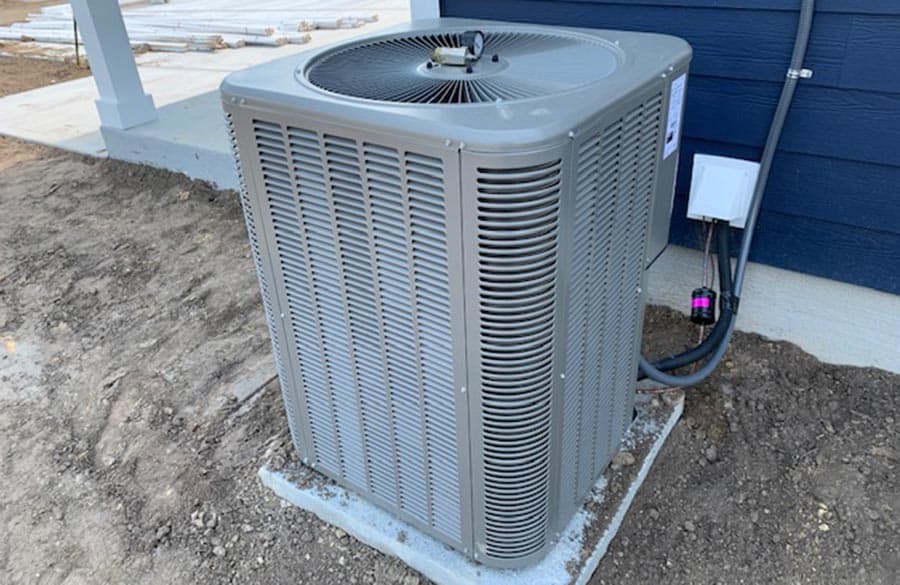
Sadly, most homeowners do poorly maintain heat pump systems. Many people don’t think about it until something goes wrong and it quits.
Some people have an “if it’s not broke, don’t fix it” philosophy. They don’t realize that a dirty heat pump will fail about 30% faster than a clean one.
Dirt is often the number one enemy of a heat pump system. A dirty heat pump system will run longer, causing components to wear out faster. It causes more condensation, which can rust components such as the evaporator coil.
It is essential to clean a heat pump system at least once a year. However, twice a year is better, once in the spring and the fall.
Be honest with yourself, and if you do not maintain your heat pump system regularly, you may as well buy the lowest price you can find.
Summary
Heat pumps need annual maintenance. Routine annual maintenance will help your heat pump perform more efficiently and will extend the longevity of your heat pump.
If you have trouble with your heat pump not producing heat properly, see our 16 Reasons Your Heat Pump Doesn’t Blow Hot Air.
Is Your Home Energy Efficient
When purchasing a new heat pump system, performance has more to do with how well insulated your home is than what brand of the heat pump. If you don’t insulate your home well, the heat pump brand won’t much matter. No heat pump brand can keep up with a home’s energy loss.
Energy loss in a home occurs through these main areas:
- Floor – If you have a basement or crawl space, the floor structure is insulated to a minimum level of R19.
- Exterior walls – The exterior walls in your home are insulated to a minimum level of R13.
- Attic – The attic space in your home is insulated to a minimum level of R30. Some areas require attic insulation to a minimum level of R60.
- Windows – Do you have energy-efficient windows installed or have older windows that have been retrofitted with energy efficiency measures such as safety glass, storm windows, caulking, and weatherstripping
- Exterior doors – Do you have a solid core or insulated exterior doors with weatherstripping to create an airtight seal?
- Ductwork – Is your existing ductwork in good condition, including insulated metal ducts with seal joints or replacement ducts with seal joints?
Suppose your home is not energy-efficient, and you consider replacing your existing heat pump system. In that case, it is best to buy based on the lowest price and put additional money towards energy savings improvements.
The two most important places to improve are your attic insulation and ductwork.
The ductwork in good condition has an average energy loss of about 30%, meaning that you will lose approximately 30% of the conditioned air produced from a heat pump system through the ductwork, even in the best conditions.
If the ductwork is poor, it can lose nearly all the conditioned air produced by a heat pump system. Air loss mainly occurs around loose joint connections at the main supply line, the floor registers, or the ceiling registers.
Ductwork can also lose conditioned air from heat transfer as it travels through the ductwork, especially over long spans. The air vents farthest from the heat pump generally have the lowest airflow.
Attic insulation is the second place where the most energy loss occurs in a home. Cold air is denser than hot air, which causes hot air to rise. Heat escapes through your home’s ceiling into the attic and completely out of the house as heat rises.
Attic insulation provides a barrier to hold hot air inside your home and slows the rate of energy loss. The thicker your attic insulation is, the more heat your house can hold.
Summary
Your home’s energy efficiency is important to the proper effectiveness of your heat pump. An Energy-Star rated heat pump will be of little good if your home can’t contain the systems output. Consider improving your home’s energy efficiency by improving insulation, ductwork, windows, and doors when replacing your heat pump for greater energy bill savings.
Best Heat Pump Brands
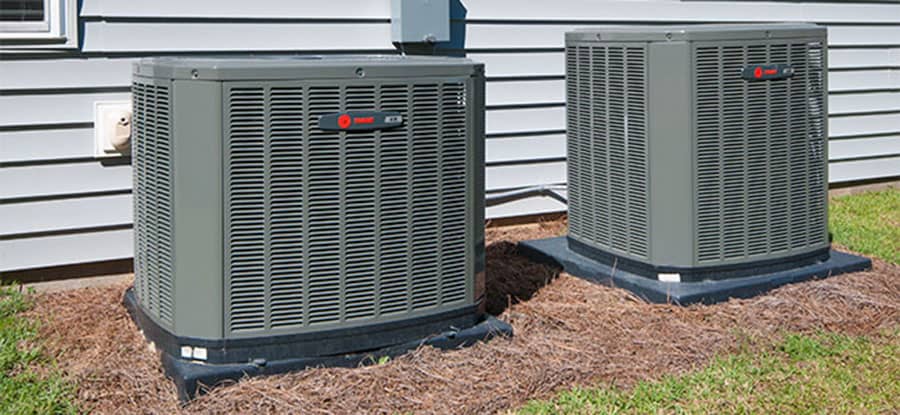
Asking someone what the best heat pump brand is like asking someone what’s their favorite car brand. You’ll get a different answer nearly every time.
Consumer Reports Best Heat Pumps
- Trane
- American Standard
- Bryant
- Carrier
- Lennox
Consumer Reports Worst Heat Pumps
- Westinghouse
- Maytag
- Frigidaire
- York
- Luxaire
The parent companies and their brands are listed below:
Ingersoll Rand owns
- American Standard
- Trane
United Technologies owns
- Carrier
- Bryant
- Payne
- Day & Night
- International Comfort Products
- Arcoaire
- Keeprite
- Heil
- Tempstar
- Comfortmaker
Lennox International owns
- Lennox
- Ducane
- Armstrong
- Concord
- Allied
- AirEase
- Airflo
Rheem Manufacturing owns
- Rheem
- Ruud
Johnson Controls owns
- York
- Luxaire
- Coleman
Daikin Global owns
- Daikin
- Goodman
- Amana
- Janitrol
Nortek Global HVAC owns
- Frigidaire
- Maytag
Wolf Street owns
- Napoleon
- Continental
These brands do their best to combine overall quality while being affordable to the general consumer. Let’s take a more in-depth look at these.
1. Trane
American Standard & Trane are the number one overall heat pump brands. They combine efficiency with longevity with a SEER rating of 14-22. Trane units are slightly more expensive than the average heat pump and can cost anywhere from $6,000 to $10,000 to install.
Trane heat pump models have low noise levels for their size. Their whisper quiet operation won’t disrupt your family. Many people report not even realizing the system is running. Trane makes air-source heat pumps, dual fuel heat pumps, geothermal heat pumps, air conditioners, and furnaces.
2. Carrier
Carrier is another premium heat pump brand. They have some of the longest-lasting and most efficient units on the market. Carrier also has the very stringent quality and installation requirements that are second to none.
The downside to Carrier is the somewhat steep price tag. The average installation cost of a Carrier heat pump can be anywhere from $5,000 on the low end to $8,500 on the high end. The high price is well worth it in the long run if you value efficiency and durability in your air conditioner.
The Carrier Infinity 24 with Greenspeed Intelligence is a highly-rated 24-Seer central heat pump system.
3. Rheem
Rheem is probably the best middle-of-the-line heat pump if you want a quality unit at an affordable price. Rheem heat pumps aren’t as efficient or long-lasting as a Carrier heat pump unit, but the price reflects that.
Rheem is the way to go if you want a reliable, efficient, and acceptably durable air conditioner at a reasonable price. They also offer a ten-year warranty on most parts and have a great customer service team.
As with most things, opinions will vary from person to person and appliance to appliance, but when considering warranty, reliability, longevity, efficiency, and price, Trane wins.
Which Best Heat Pump Brand Lasts the Longest?
Overall, the longest-lasting heat pump is Trane. Trane heat pumps are made with high-quality materials designed to be efficient and long-lasting. The average lifespan of a Trane heat pump is 18-22 years but much longer if properly cared for.
Answering the question of which heat pump brand lasts the longest is hard to determine due to the number of factors involved. If you don’t take care of your Trane heat pump, it will give out sooner than it should. At the same time, a properly cared for Carrier or Rheem unit could last longer than a Trane if it is not maintained right.
Which Best Heat Pump is Most Reliable?
Once again, Trane wins the award for being the most reliable heat pump. One of the reasons that Trame systems are so reliable is that their manufacturer requires installers to be specially trained and certified. Requiring this feature ensures that the air conditioner will be properly installed, which is half the battle for air conditioners.
What is the Best Energy Efficiency Rating
Two main energy efficiency ratings are used in the US. They include the SEER and HSPF ratings. Let’s look at both ratings. According to the EPA, the higher the HSPF and SEER, the higher the unit cost on average.
What is SEER rating
SEER stands for the Seasonal Energy Efficiency Ratio and measures heat pump cooling efficiency in average climates. Manufacturers measure this by conducting various outdoor temperatures to simulate a cooling season.
In the US, SEER rating = BTUs of cooling/watts of energy
SEER rating ranges from 14 to 27. Ductless SEER ratings can be over 30.
The higher the number, the more efficient the cooling system is. The SEER or SEER2 rating is only a maximum and may not always achieve this efficiency.
Most ducted heat pumps have a maximum rating of 18 SEER. You can expect to lose a certain amount of output through the ducts.
The SEER rating may not be as important to you if you live in a cool climate where the summer months do not experience extreme heat. The HSPF rating will matter more to you. You’ll likely find that a 13 or 14 SEER heat pump is more than sufficient for your needs.
An Energy-Star heat pump can lower your overall energy costs. Look for the Energy-Star seal on the outdoor or indoor unit for energy savings information, which calculates estimated annual energy use and energy costs.
What is HSPF rating
HSPF stands for Heating Season Performance Factor, and a heat pump’s heating efficiency is measured in average climates. Manufacturers measure this by conducting tests at various outdoor temperatures to simulate the heating season in cold climates.
HSPF = BTUs / Watt Hours
Ratings range from 7.7 to 14
The higher the number, the more efficient the heat pump is in heat mode. This is only a maximum efficiency level, and the system may not always achieve this level.
You should also note that the HSPF rating does not consider using emergency heat sources such as heat strips or an auxiliary gas furnace.
If you live in the southern climate, you will likely find that the HSPF rating is less important than the SEER rating.
Summary
The SEER and HSPF ratings are the two main energy-efficiency ratings used by heat pumps today. In 2015, a minimum standard of 14 SEER was introduced in the US which all standard heat pump manufactured adhere to.
Why SEER Ratings for Ductless Systems are Higher
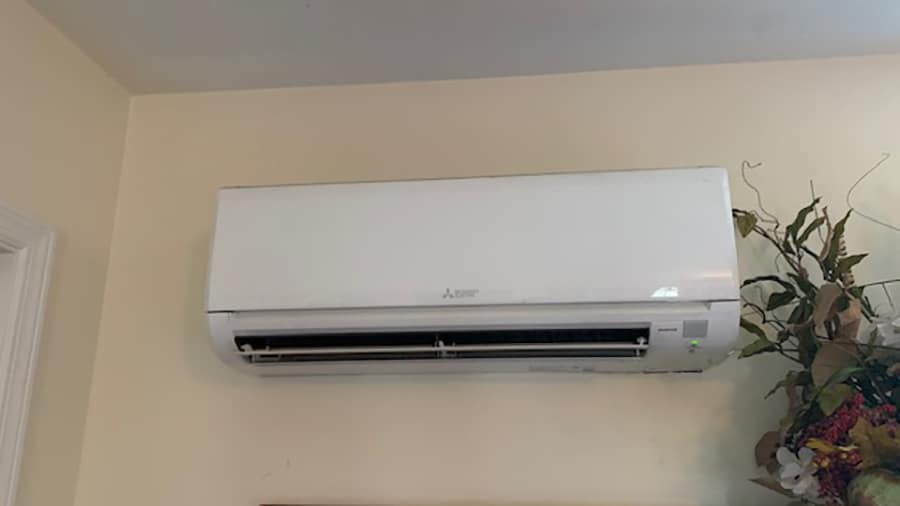
The minimum rating for ducted heat pumps manufactured after January 1, 2015, is 14 SEER. However, ductless heat pumps exceed this rating.
Ductless heat pumps operate at a much higher efficiency than ducted heat pumps. While ducted heat pumps typically operate at around 14 to 18 SEER, ductless heat pumps can run as high as 30 SEER or more in some cases.
We mentioned earlier in this article that ductwork can lose approximately 30% of the heat pump cooling output. Standard heat generally pumps heat and cools larger spaces with multiple rooms, which causes the system to run longer—coupled with the 30% loss of a heat pump to cooling output through the ductwork, one of the factors contributing to a standard heat pump’s lower SEER rating.
Ductless heat pumps do not have this issue. They function well in smaller open spaces and distribute their cooling output directly into the room through a wall-mounted indoor unit or a ceiling cassette—allowing a ductless system to run more efficiently than their standard heat pump counterparts. The outdoor unit is an outdoor coil and fan used as a heat exchanger.
Summary
Ductless heat pumps have higher SEER ratings because they can produce cooling with less power and distribute it directly into the home. Standard heat pumps use ductwork which looses 30% of its cooling output in transit through the ductwork.
Choosing the Best Heat Pump for You
Those who have options have more negotiating power. When it comes to choosing the best heat pump for you, it’s no different. What does it mean to have more options? It means not waiting for your heat pump to completely quits in the dead of summer to start looking for a replacement heat pump.
Are you thinking about installing a dual fuel heat pump? Don’t know if a dual fuel heat pump is worth the added cost? Check out our article Are Dual Fuel Heat Pumps Worth It? What You Need to Know. I think it will help.
Shop for Best Heat Pumps in the Off-Season
HVAC companies are hectic during the summer and winter due to extreme hot and cold weather. Spring and fall are ideal times to shop for a new heat pump system.
HVAC contractors often offer discounted rates when work is slow to keep operations going. Some manufacturers also provide Installation discounts during slow periods.
Obtain Three Quotes from HVAC Contractors
Competition between contractors is good, especially for you and your wallet. If you consider replacing your heat pump, be proactive and obtain at least three quotes from different HVAC contractors.
Ask these questions from each HVAC contractor including:
- How long have you been in business? You want to do business with a company with a good track record of performance. Beware of fly-by-night operations and do business with a local company that can easily be reached if needed.
- Can you provide three references? Successful companies want to provide you with testimonials. They’re always looking for a reason to shine.
- What warranties do you provide? Ask about the heat pump warranty and their labor warranty. Common practice is generally a 5-6 year manufacturer warranty and one year on labor.
- Why exactly are you recommending this heat pump system? Ask why they are recommending this particular brand over another.
- Are you licensed and insured? Ask if all installing technicians are licensed and have general liability insurance.
- Ask about the brand of the heat pump being installed. Do a google search for the “brand name reviews” and read reviews from people like you who already own this brand heat pump being offered.
Search for Online Ratings
Do a google search and a Facebook lookup for each HVAC company providing a quote. Read their ratings and reviews, especially the negative ones. Reviews will give you insight into how they handle dissatisfied clients.
Look for Signs of Professionalism
Look for signs of the company’s professionalism. Are there service trucks and install vans clean? Are their technicians wearing uniforms? While this isn’t everything, it does speak to company pride. Often I’ve seen companies that treat themselves with cleanliness and professionalism will also treat your home that way.
Summary
Choosing the right HVAC contractor is just as important as the heat pump itself. Experienced and professional HVAC contractors will look after their client’s needs and direct them in the best course of action to ensure they’re satisfied with their purchase not only today but for years to come.
Best Heat Pump FAQs
How efficient are heat pumps?
Heat pumps are highly efficient systems that can reduce your energy bills significantly. Heat pumps use much less energy to provide the same level of comfort by transferring thermal energy instead of generating it with fuel or electricity.
Are heat pumps noisy?
Heat pumps are relatively quiet systems, and modern models have been designed to be as quiet as possible. Some systems may produce a low humming noise, but this is usually only noticeable in quiet environments. The loudest component is the fan and fan motors.
What maintenance do heat pumps require?
Heat pumps require regular maintenance to stay in top condition. This usually involves cleaning the outdoor unit and ensuring all vents are debris-free. It’s also important to check that the system is correctly charged with refrigerant and that all electrical connections are secure.
What size heat pump do I need?
The size of the heat pump that’s right for you depends on the size of your home and the amount of heating or cooling you need. You can estimate 1 ton of capacity per 500 to 900 square feet depending on your home’s energy efficiency. An HVAC contractor can do proper heat gain calculations to determine the exact size heat pump you need.
How long do heat pumps last?
Heat pumps typically last around 10 to 20 years. With regular maintenance, you can expect the system to remain reliable and efficient for years ahead.
Can I install a heat pump myself?
Installing a central heat pump is complex work that requires in-depth knowledge of electrical and HVAC systems. Hiring a qualified technician is best to ensure the system is properly installed and functioning safely. Some DIY mini split heat pump systems exist, but some electrical work will be necessary.
What are the benefits of using a heat pump?
Heat pumps offer a range of benefits, including energy efficiency and cost-savings, as well as a comfortable and consistent temperature throughout your home. Heat pumps are also extremely easy to use, with many modern models offering convenient control via smartphone apps.
Are heat pumps environmentally friendly?
Absolutely! Heat pumps reduce reliance on fossil fuels, meaning fewer emissions and cleaner air for everyone. Plus, the efficient way they move heat can save you money on your energy bills, reducing your carbon footprint even further.
How much does a heat pump cost?
The cost of a heat pump depends on several factors, such as size and type. Generally speaking, installation costs range from around $4,000 to $10,000 for a full system. However, this can be offset by savings on energy bills in the long-term. It’s always best to discuss your options with an expert who can advise you on the most cost-effective solution for your home.
In Closing
Buying a new heat pump is an expensive purchase for your home. But it doesn’t have to be a scary one. With proper preparation and knowledge, you can choose the right heat pump that will last you for many years.
We’ve advocated in this article choosing based on price rather than brand. However, we are not supporting price as the only option. A cheap heat pump installed by an inexperienced installer can be disastrous if something goes wrong.
Choosing the best heat pump also means selecting the right company to install it. Choose a company that will be there for you before, during, and after the sale.
Find an established local company with an excellent reputation for service and represents some good product lines backed by a good warranty.
Get FREE quotes from licensed HVAC contractors in your area today. Whether you need a new install, service, or basic repair We Can Help! All HVAC contractors are screened, licensed, and insured.


